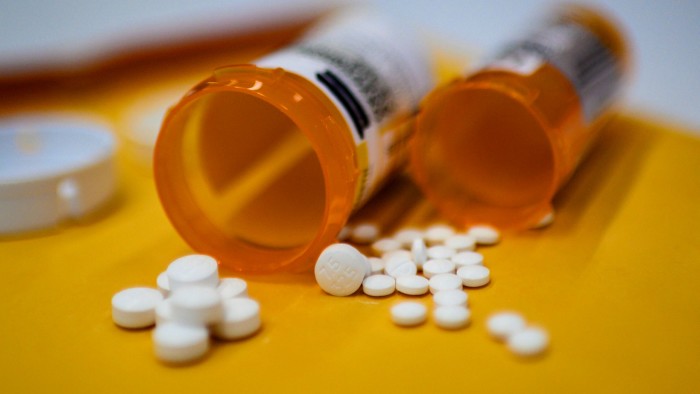US relaxes rules for opioid substitutes during lockdowns | Free to read

Roula Khalaf, Editor of the FT, selects her favourite stories in this weekly newsletter.
Coronavirus lockdowns have prompted the Trump administration to relax rules governing addiction treatments such as methadone, in what campaigners say has been a policy revolution in dealing with the US opioid crisis.
In the past few months, US agencies have temporarily eased restrictions governing how doctors can prescribe drugs meant to help addicts wean themselves off heroin and other opioids. Addicts can now begin treatment online instead of in person, receive home deliveries of drugs used as treatments and keep weeks’ worth of supplies at home.
While lockdowns have made life harder for addicts in many ways, those working in addiction therapy say the new rules for the crisis could encourage more people to seek treatment.
“We are seeing changes for which people had been advocating for decades,” said Matthew Stefanko, a director at Shatterproof, which campaigns for addiction treatment. “The short-term changes we have seen are a really positive sign — the hope is now that they will last for longer than the lockdowns.”
Before coronavirus hit, addiction to opioids was seen by many as the biggest public health crisis in the US. According to the Centers for Disease Control and Prevention, 47,600 people died in 2018 after overdosing on opioids including heroin and painkillers such as fentanyl.
According to Brandon Marshall, associate professor at the Brown University School of Public Health, the opioid crisis is now the “epidemic within the pandemic”.
One important way to treat these addictions is to prescribe patients one of three drugs: methadone, buprenorphine and naltrexone.
US doctors face restrictions on prescribing such drugs as methadone and buprenorphine because of the fears they could be abused. Both offer users a more modest euphoric effect than heroin, but many doctors have expressed concern that prescribing them simply substitutes one addiction for another.
Editor’s note

The Financial Times is making key coronavirus coverage free to read to help everyone stay informed. Find the latest here.
They also point to evidence such drugs could end up on the black market, fuelling the problem they are meant to solve. Methadone was involved in 3,194 deaths in the US in 2018, compared to 15,482 involving heroin.
As a result of both strict regulation and the concerns of individual clinicians, only a little more than a third of patients being treated for opioid abuse receive medications, according to a study by the National Institute on Drug Abuse in 2011.
The US government has since 2017 made increasing medication-based opioid treatment one of its “major pillars” in fighting the crisis. But the Trump administration stepped up the effort during coronavirus lockdowns, which have cut off many addicts both from their regular substances and from in-person behavioural therapy and rehabilitation.
For the period of the crisis, the Drug Enforcement Administration is allowing patients to receive supplies of methadone via home delivery if they cannot get to a clinic. The DEA will also allow doctors to prescribe drugs outside their state and to prescribe buprenorphine without having seen a patient in person first.
Meanwhile, the Substance Abuse and Mental Health Services Administration is allowing “stable” patients to take home enough methadone for 28 days, or 14 if they are seen as being more at risk of overdose. Health experts recognise this might increase the risk of overdose for some patients, but many believe it is better than thousands of patients running out of supplies.
Andrew Kolodny, co-director of opioid research policy at the Heller School for Social Policy and Management, said there was an opportunity to get new patients on treatment because they were “more desperate in the context of Covid”, especially if illegal supply is being hampered by a drop in cross-border travel.
In the case of buprenorphine, access could be improving, he said. “Not only are people already getting it able to switch to telemedicine visits, but also potentially people who are opioid addicted but afraid to go out to buy heroin or concerned that they will be unable to maintain supply.”
Online caregivers stand to benefit. Boulder Care, a tele-health company for opioid addiction, said it had enrolled a third more patients in the past two months than it normally would, while new inquiries are going up more than 100 per cent each week.
Academics are hoping some of these policy changes might last beyond the coronavirus crisis — though they say they would need data to prove the new rules had helped improve health outcomes.
Robert Pack, professor of community and behavioural health at East Tennessee State University, said: “These regulations were changed because of the coronavirus pandemic. Now I would like to see an evaluation of whether they are appropriate for the opioid epidemic.”

Comments